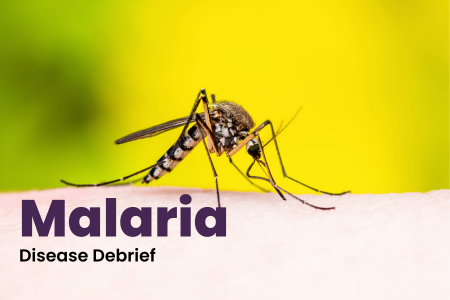
Introduction:
Malaria remains a significant global health concern, particularly in regions where the disease is endemic. It is caused by parasites of the Plasmodium species and transmitted through the bites of infected mosquitoes. Lariago Ds Tablet Uses to treat malaria, a serious or life-threatening illness that is spread by a parasite that enters the human body by the bite of infected mosquitoes.
While prevention measures such as mosquito nets and antimalarial medications are crucial, prompt and effective emergency treatment is essential for those experiencing severe malaria symptoms. This blog explores the emergency treatment options for malaria, emphasizing the importance of timely intervention and medical care like Lariago Ds.
Understanding Malaria Emergency:
- Recognizing Severe Malaria Symptoms:
- Malaria can present with a range of symptoms, from mild to severe. Severe malaria is a medical emergency and may manifest as:
- High fever (often over 101°F or 38.3°C)
- Severe headaches
- Chills and sweating
- Confusion or altered mental status
- Seizures
- Jaundice (yellowing of the skin and eyes)
- Organ dysfunction (such as kidney or liver failure)
- Difficulty breathing
- Malaria can present with a range of symptoms, from mild to severe. Severe malaria is a medical emergency and may manifest as:
- Immediate Actions:
- If someone develops symptoms suggestive of severe malaria, it is crucial to seek medical attention urgently. Time is of the essence in treating severe malaria to prevent complications and reduce mortality.
Emergency Treatment Approaches:
- Antimalarial Medications:
- The choice of antimalarial medication depends on several factors, including the type of malaria parasite, the severity of the illness, and local drug resistance patterns.
- Artemisinin-based Combination Therapies (ACTs): These are the first-line treatments recommended by the World Health Organization (WHO) for uncomplicated malaria and may also be used in severe cases.
- Intravenous Artesunate: Recommended by the WHO as the treatment of choice for severe malaria, particularly in areas where malaria parasites are resistant to other antimalarial drugs.
- Hospitalization and Supportive Care:
- Individuals with severe malaria often require hospitalization for close monitoring and supportive care, including:
- Intravenous fluids to maintain hydration and electrolyte balance.
- Management of complications such as respiratory distress, seizures, or organ dysfunction.
- Blood transfusions if severe anemia is present.
- Oxygen therapy if there is difficulty breathing.
- Individuals with severe malaria often require hospitalization for close monitoring and supportive care, including:
- Monitoring and Follow-up:
- Continuous monitoring of vital signs, blood glucose levels, and parasite levels (through blood smears) is essential during treatment.
- Follow-up care ensures that the patient responds well to treatment and does not experience relapses or complications after discharge.
- Management of Complications:
- Depending on the severity and complications of malaria, additional interventions may be necessary:
- Seizure Management: Administer anticonvulsant medications as needed.
- Respiratory Support: Provide oxygen therapy or mechanical ventilation if respiratory failure occurs.
- Hemodynamic Support: Use vasopressors to maintain blood pressure in cases of shock.
- Depending on the severity and complications of malaria, additional interventions may be necessary:
Prevention Strategies and Community Awareness:
- Preventative Measures:
- Emphasize the importance of malaria prevention strategies such as:
- Sleeping under insecticide-treated bed nets.
- Using insect repellents and wearing long-sleeved clothing during peak mosquito biting times.
- Taking prophylactic antimalarial medications when traveling to endemic areas.
- Emphasize the importance of malaria prevention strategies such as:
- Community Education:
- Educate communities about the early recognition of malaria symptoms and the importance of seeking prompt medical care.
- Raise awareness about the correct use of antimalarial medications and the dangers of self-medication or incomplete treatment courses.
Global Efforts and Resources:
- WHO Guidelines and Recommendations:
- The WHO provides guidelines for the treatment and management of malaria, ensuring standardized and effective approaches worldwide.
- Collaboration with national health authorities and international organizations supports the distribution of essential medications and supplies to combat malaria outbreaks.
- Research and Development:
- Ongoing research aims to develop new antimalarial drugs, improve treatment regimens, and understand emerging resistance patterns among malaria parasites.
- Funding initiatives support malaria control programs, research endeavors, and public health campaigns aimed at reducing malaria transmission and improving treatment outcomes.







